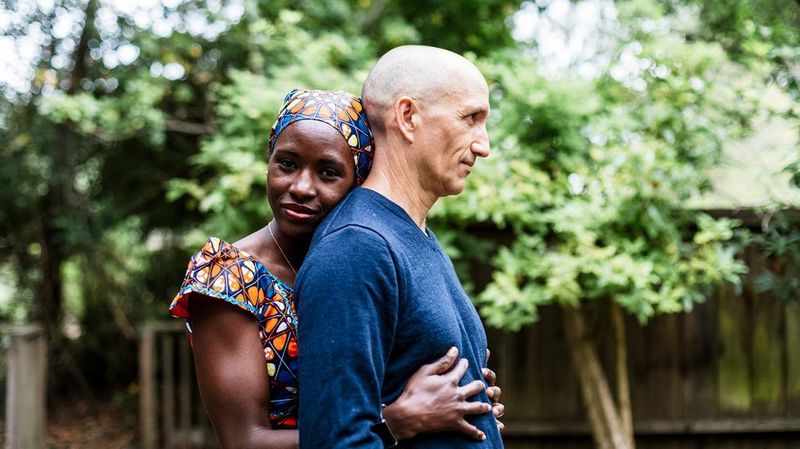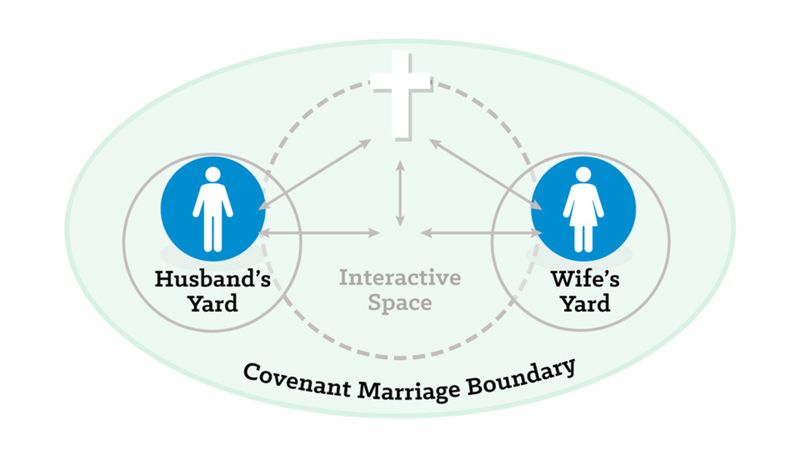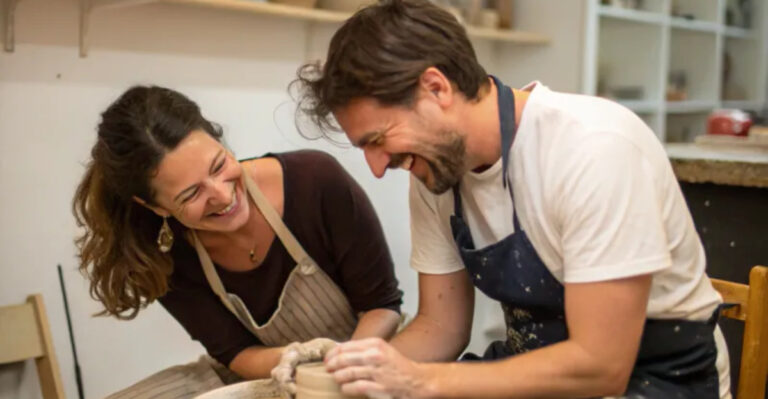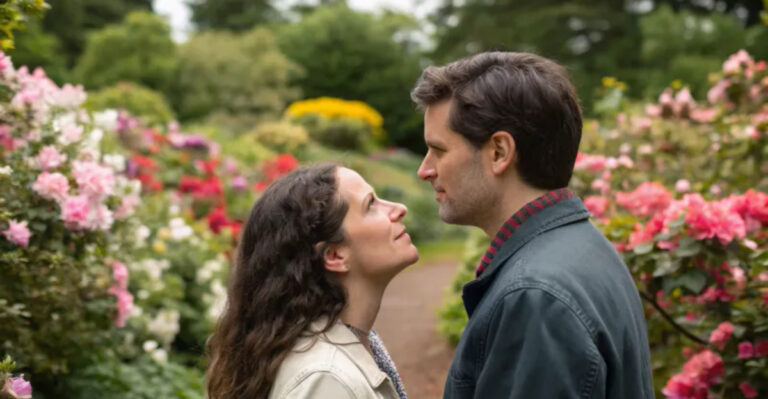18 Reasons You Should Always Protect Yourself—Even In A ‘Happy’ Marriage
Many people assume that a healthy marriage equates to full vulnerability. But the reality is that protecting yourself emotionally, legally, and financially is a smart move—even within the happiest of relationships.
This approach is centered on self-respect and emotional safety, avoiding fear-mongering while embracing a steady, reflective tone.
1. Things can change faster than you expect

Marriage, like life, is full of unexpected twists and turns. One minute, you might be laughing together over morning coffee, the next grappling with unforeseen challenges. Changes in jobs, health, or family dynamics can abruptly shift the course of even the most stable relationships.
These shifts aren’t necessarily negative, but they do require adaptability. The ability to protect oneself emotionally often hinges on being prepared for the unpredictable.
A sudden change doesn’t mean the love is gone; rather, it reflects life’s natural ebb and flow. Being aware of this can help couples navigate transitions smoothly, emphasizing the importance of personal emotional reserves.
2. People grow—and sometimes, they grow apart

Growth can be a beautiful part of any partnership, but it can also lead to diverging paths. As individuals pursue their dreams and evolve, sometimes those changes lead them in different directions.
This isn’t a failure of the relationship but a testament to the complexity of personal growth. Embracing your own journey while nurturing the marriage is crucial.
It’s possible to love deeply and still need space to spread your wings. Recognizing and respecting this dynamic safeguards both partners’ emotional well-being.
3. Love doesn’t erase financial risk

Financial security within marriage isn’t guaranteed, no matter how strong the love might be. Economic downturns or unexpected expenses can strain the relationship.
By maintaining a level of financial independence, individuals can ensure a measure of stability. Having a personal account or savings can provide peace of mind, allowing love to flourish without financial stress overshadowing it.
Incorporating financial planning into your marriage isn’t a lack of trust, it’s about building a solid foundation together. When both partners are informed and prepared, the bond can grow stronger.
4. You can be deeply loved and still taken for granted

Even in relationships filled with love, there can be moments where one partner feels overlooked. Routine can lead to complacency, and sometimes, appreciation gets lost in the daily shuffle.
It’s essential to express gratitude and recognize each other’s contributions regularly. This awareness can reignite the spark and make both partners feel valued.
Taking steps to communicate feelings and needs ensures that love doesn’t become a silent expectation but remains an active expression of care and respect.
5. Loyalty shouldn’t mean silence

Loyalty is often seen as a cornerstone of marriage, but it shouldn’t come at the cost of silence. Open communication is vital for addressing issues before they snowball into larger problems.
Being able to voice concerns and talk through disagreements strengthens the relationship. Silence can create distance, while constructive conversations foster closeness.
Encouraging an environment where both partners feel safe to express themselves leads to a more profound understanding and connection.
6. Conflict reveals who really has your back

Disagreements are inevitable, but how they’re handled can reveal the true nature of a partnership. Conflict isn’t just a challenge; it’s an opportunity to see who stands by you.
Supportive partners use disagreements as a way to grow closer, not drive a wedge. Seeing conflict as a chance to learn about each other can transform tension into a bonding experience.
Adversity tests the mettle of a relationship, showing whether partners are willing to weather storms together.
7. You still need your own identity

Marriage is a union, but it shouldn’t erase individual identities. Maintaining a sense of self is crucial for personal satisfaction and balance within the relationship.
Pursuing personal interests and friendships enriches both partners’ lives, preventing dependence while encouraging mutual growth.
A healthy marriage celebrates individuality and the unique qualities each partner brings, supporting both collective well-being and personal fulfillment.
8. Your boundaries matter—even in marriage

Boundaries in marriage are vital to ensure both partners feel respected and understood. They act as guidelines to maintain healthy interactions and personal space.
Even within a loving relationship, it’s important to communicate and respect each other’s limits. This clarity prevents misunderstandings and nurtures trust.
Boundaries aren’t barriers; they’re the frameworks that keep love thriving by honoring each person’s needs and preferences.
9. Being prepared isn’t the same as being pessimistic

Preparing for potential challenges in marriage isn’t about expecting failure; it’s about resilience. Having plans in place for various scenarios provides peace of mind and strengthens the partnership.
This readiness isn’t an indication of doubt but a commitment to facing life’s unpredictability together. It fosters confidence and security within the relationship.
As partners, acknowledging that life holds surprises encourages a proactive approach, enhancing stability and trust.
10. Financial independence equals emotional peace

Financial independence within marriage offers a sense of freedom and peace of mind. It allows both partners to contribute to the relationship without feeling financial pressure.
Having separate financial resources can alleviate stress, making it easier to focus on nurturing the emotional aspects of the relationship. This balance supports both individual and shared goals.
When financial worries are minimized, emotional connections thrive, enabling partners to enjoy their time together more fully.
11. You should never stop checking in with yourself

Regular self-reflection is essential in ensuring personal well-being within a marriage. Checking in with yourself helps maintain balance and alignment with your values and goals.
This practice encourages personal growth while supporting the relationship, as it allows for a better understanding of one’s needs and desires.
Being attuned to oneself ultimately enhances the partnership, fostering an environment where both partners can flourish together while honoring their individual journeys.
12. One-sided sacrifices don’t build long-term love

In a healthy marriage, both partners should contribute equally to the relationship. One-sided sacrifices can lead to resentment and imbalance over time.
It’s important to communicate and negotiate shared responsibilities, ensuring that both partners feel valued and supported. This balance fosters mutual respect and love.
When sacrifices are made collaboratively, they strengthen the bond and promote a lasting, harmonious relationship.
13. You need support outside your spouse

While a spouse can be a major source of support, it’s important not to rely solely on one person. Having a network of friends and family enriches your life and provides diverse perspectives.
External support systems offer reassurance and companionship, adding depth to your connections. They also help maintain a sense of community and belonging.
This variety of relationships can enhance your marriage, as it allows both partners to bring new experiences and insights into their shared life.
14. Healthy marriages respect space—not erase it

Respecting personal space within a marriage is essential for both partners’ well-being. It allows individuals to recharge and engage in self-care while nurturing the relationship.
Space doesn’t imply distance or detachment; rather, it enhances intimacy by giving each person room to breathe and grow.
A relationship that respects personal space fosters trust and appreciation, encouraging partners to return to each other with renewed energy and love.
15. Secrets grow in places where there’s no accountability

Transparency and accountability are crucial in preventing secrets from taking root in a marriage. Honesty fosters trust and openness, creating an environment where both partners feel secure.
Keeping secrets can erode the foundation of a relationship, leading to misunderstandings and mistrust. Open communication helps address issues before they become significant problems.
By promoting accountability, couples can cultivate a relationship built on honesty, where trust and love continue to flourish.
16. Feeling safe today doesn’t mean forgetting the past

Safety in a marriage is a wonderful feeling, but it shouldn’t lead to complacency. Acknowledging past experiences—both good and bad—can inform future growth and understanding.
Reflecting on the past allows partners to learn from previous challenges, ensuring they don’t repeat mistakes.
This awareness encourages a proactive approach to strengthening the relationship, fostering resilience and adaptability in the face of new challenges.
17. You should always know where things stand—financially, legally, and emotionally

Being informed about your relationship’s financial, legal, and emotional aspects is crucial for maintaining its health. Knowing where things stand provides clarity and security.
This awareness enables proactive decision-making and fosters open communication between partners. It also helps prevent potential misunderstandings or conflicts.
Partners who actively engage in understanding their relationship’s status cultivate a sense of teamwork and trust, enhancing the overall bond.
18. Protecting yourself isn’t selfish—it’s smart

Protecting oneself in a marriage isn’t an act of selfishness; it’s a strategic way to ensure long-term well-being. Emotional, legal, and financial safeguards provide stability for both partners.
By prioritizing personal protection, individuals contribute to a balanced and healthy relationship. This approach supports mutual respect and understanding.
When partners feel secure, they can engage more fully and authentically, creating a strong, lasting partnership based on trust and love.







